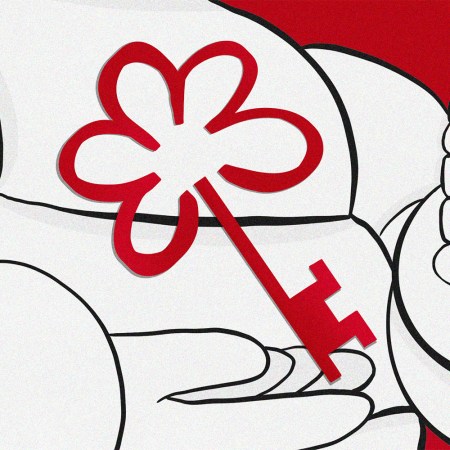During Obon, the Japanese summer festival when ancestral spirits are welcomed back home for a three-day family reunion in the world of the living, ancestors are honored with offerings of favorite food, bonfires and lively dances.
At the end of the reunion, the ancestral spirits are led back to the land of the dead on a river of floating lanterns.
There is a lot of cooking and cleaning to be done in preparation. Graves must be swept and flowers are arranged. The food offerings are mostly for “display rather than consumption,” Elizabeth Andoh, author of the cookbooks Kansha and Washoku, who was born and raised in New York but has made her home in Japan since the 1960s, told Atlas Obscura. Obon is celebrated all over Japan, but the dishes cooked vary from family to family and region to region.
In Saga Prefecture, for example, cucumbers are made into horses and eggplants into cows. The cucumber horses, or “spirit horses,” represent ancestors’ swift journeys home to their families. And the eggplant cow embodies ancestors’ leisurely return trip with souvenirs in tow.
Thanks for reading InsideHook. Sign up for our daily newsletter and be in the know.


















